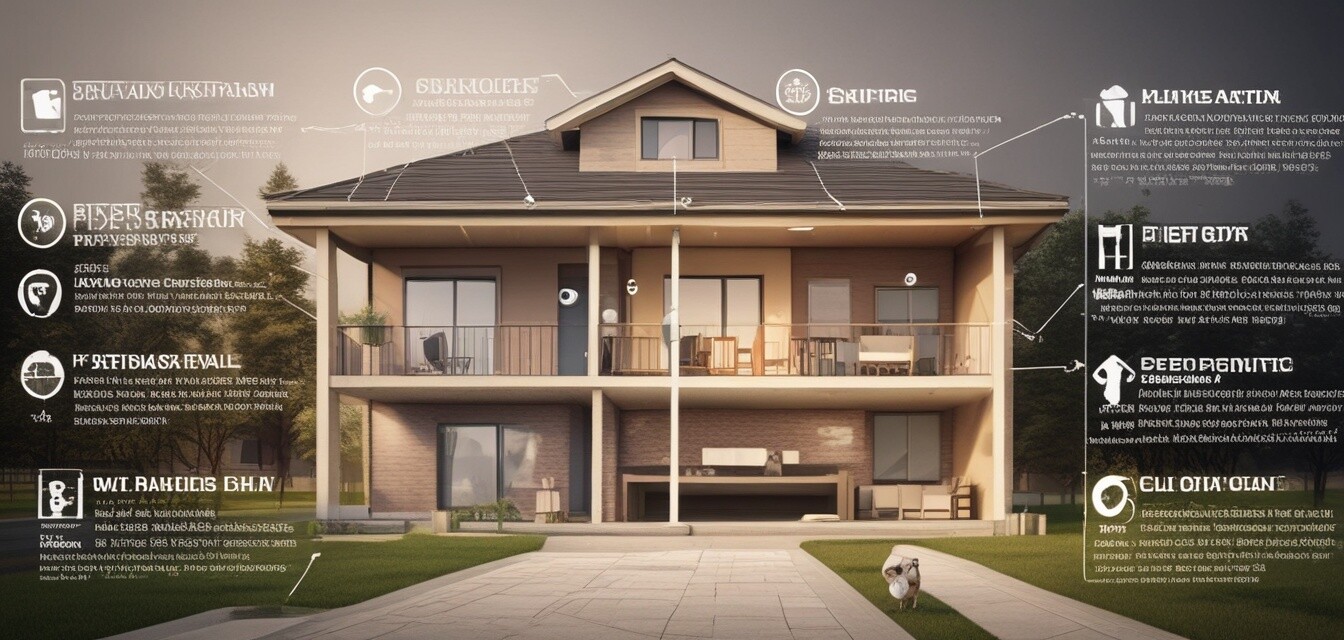
A Beginner's Guide to Home Security Terminology
- Understanding home security terminology is crucial for making informed purchasing decisions.
- Key terms include CCTV, motion sensors, alarms, and more.
- Familiarity with features helps you assess products effectively.
- Resources like buying guides can assist first-time buyers.
When it comes to home security, understanding the terminology is essential for first-time buyers. With various terms and acronyms being used, it can often feel overwhelming. This guide will familiarize you with common home security terminology to help you make informed decisions when purchasing products.
Why is understanding home security terminology important?
Being well-versed in the language of home security empowers consumers to ask the right questions, differentiate between products, and ultimately select the best security solution for their homes. In this guide, we will break down frequently used terms associated with home security.
Common Home Security Terms
| Term | Definition |
|---|---|
| CCTV | Closed-Circuit Television, commonly used for surveillance in homes. |
| Motion Sensor | A device that detects movement in a specific area. |
| Alarm System | A system designed to alert homeowners and authorities of unauthorized access. |
| Smart Home Integration | Connecting security devices to a home network for remote control and monitoring. |
| Intrusion Detection | Detection systems that monitor for unauthorized entry into a property. |
| Wireless Security Camera | A camera that transmits video data wirelessly without a constant physical connection. |
| Video Doorbell | A doorbell with a built-in camera that allows you to see and communicate with visitors remotely. |
Important Features to Consider
When buying security products, be aware of important features associated with terms you've learned. Here are some key features to consider:
- Resolution: Look for high-resolution cameras for clearer images, especially at night.
- Night Vision: This allows cameras to capture footage in low light, essential for nighttime surveillance.
- Two-Way Audio: Enables verbal communication through smart devices, enhancing interactivity.
- Cloud Storage: Store video footage securely in the cloud for easy access and retrieval.
Helpful Resources for First-time Buyers
To further assist you in understanding home security, check out these resources:
- Home Security Buying Guides - Explore comprehensive buying guides on various security products.
- Security Alarms & Sensors - Learn about different alarm systems that can protect your home.
- Smart Doorbell Cameras - Understand the benefits of doorbell cameras for visitor monitoring.
Conclusion
By learning and understanding common home security terminology, you are better prepared to protect your home and make informed purchasing decisions. Familiarize yourself with different features, and refer to guides and resources for assistance. Your home deserves the best protection possible.
Pros
- Empowers informed decision-making.
- Clarifies functionality of security products.
- Enhances ability to evaluate and compare options.
Cons
- Can be overwhelming to learn a lot at once.
- Misunderstandings can lead to poor product choices.
